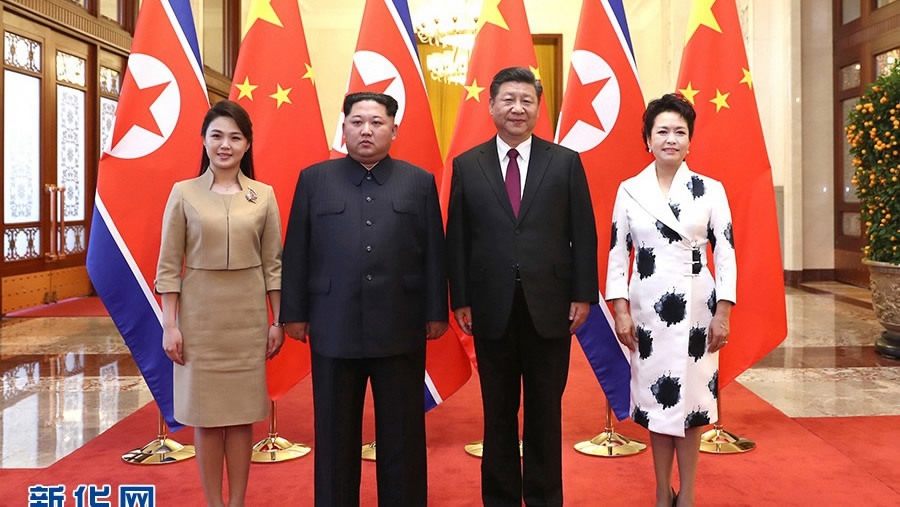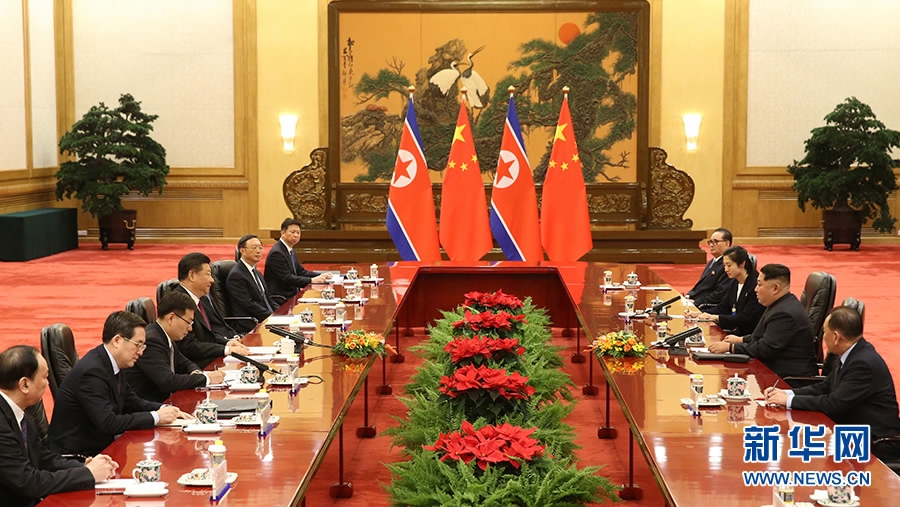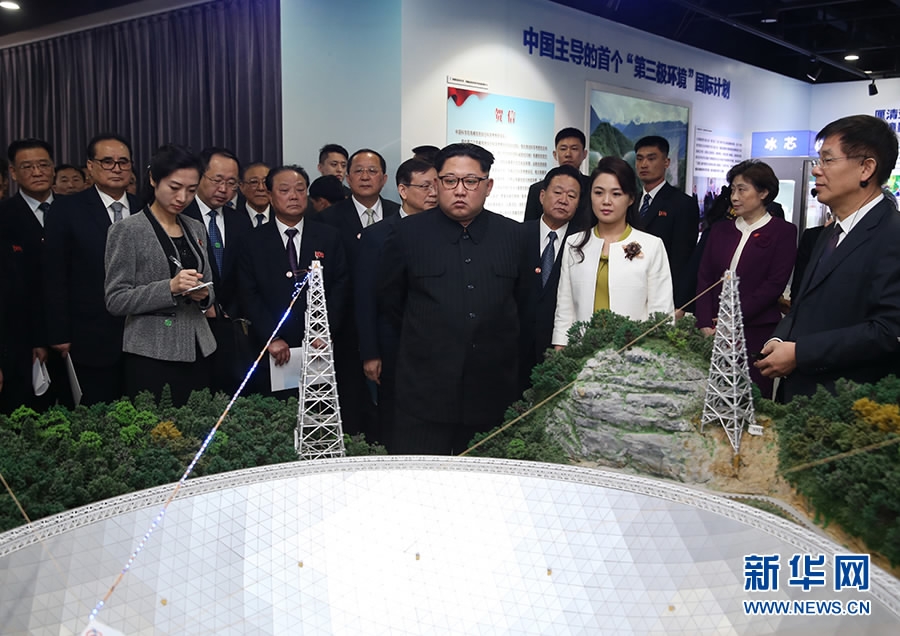
(Photo: Xinhua)
Kim Jong Un, the young leader of the Democratic People's Republic of Korea (DPRK), wrapped up his three-day visit to Beijing on Wednesday. Chinese President Xi Jinping said the trip, Kim's first since taking the DPRK reins in 2011, was of great significance.
Kim's arrival in China came as a surprise to some observers, but Da Zhigang, director of the Institute of Northeast Asian Studies under Heilongjiang Academy of Social Sciences, said it met with expectations given the recent uptick in dialogue from the DPRK.
In his New Year speech in January, Kim indicated that he would take action to seek the easing of the spiraling tensions on the Korean Peninsula. Then during the PyeongChang Winter Olympics, Pyongyang staged "smile diplomacy," effectively easing tensions with Seoul and even raising the prospect of reunification.

Chinese President Xi Jinping and DPRK leader Kim Jong Un hold talks at the Great Hall of the People in Beijing, China. (Photo: Xinhua)
Kim's decision to meet Xi at the latter's invitation ahead of talks with US President Donald Trump slated for May indicates that the DPRK leader regards China as a close friend, and needs its neighbor's input ahead of negotiations with Trump.
Such high-level cooperation will help avoid any "unhappy surprises" in the Kim-Trump engagement and make sure that discussions will be "built on peace and stability," said Victor Gao, vice president of the Center of China and Globalization. He suggested the Beijing trip would offer Pyongyang a sense that it will not be alone in facing Washington.
"Both the two countries showed strategic insight, as the overseas debut by Kim will help enhance the discourse power of both Beijing and Pyongyang in Northeast Asia," Da Zhigang noted.
The diplomatic breakthrough also demonstrates Xi's ability to make progress on a sophisticated international situation complicated by the White House's trade war threat. With a more intimate Beijing-Pyongyang relationship and stronger strategic communication, a geopolitical change may take place in the post-Cold War Northeast Asian region.

DPRK leader Kim Jong Un pays a visit to Beijing, March 25-28, 2018. (Photo: Xinhua)
During the meeting, Kim vowed to shift focus on domestic economic growth. It's anticipated that culture and people-to-people exchanges will become increasingly frequent in the future, precipitating more mutual trust between the two peoples.
"Now we are moving in a positive direction," said Gao. "China is happy to see what it has proposed is becoming a reality on the ground." The meeting was a milestone in China's perennial effort to achieve the ultimate goal of lasting peace and stability in Northeast Asia.
Regarding the decades-long conundrum on the Korean Peninsula, all parties involved should participate in the endeavor to make sure no one second-guesses or surprises each other. Trust must not only exist between China and the DPRK, but also among all the regional stakeholders – who hold the key to the destiny of the Korean Peninsula.


